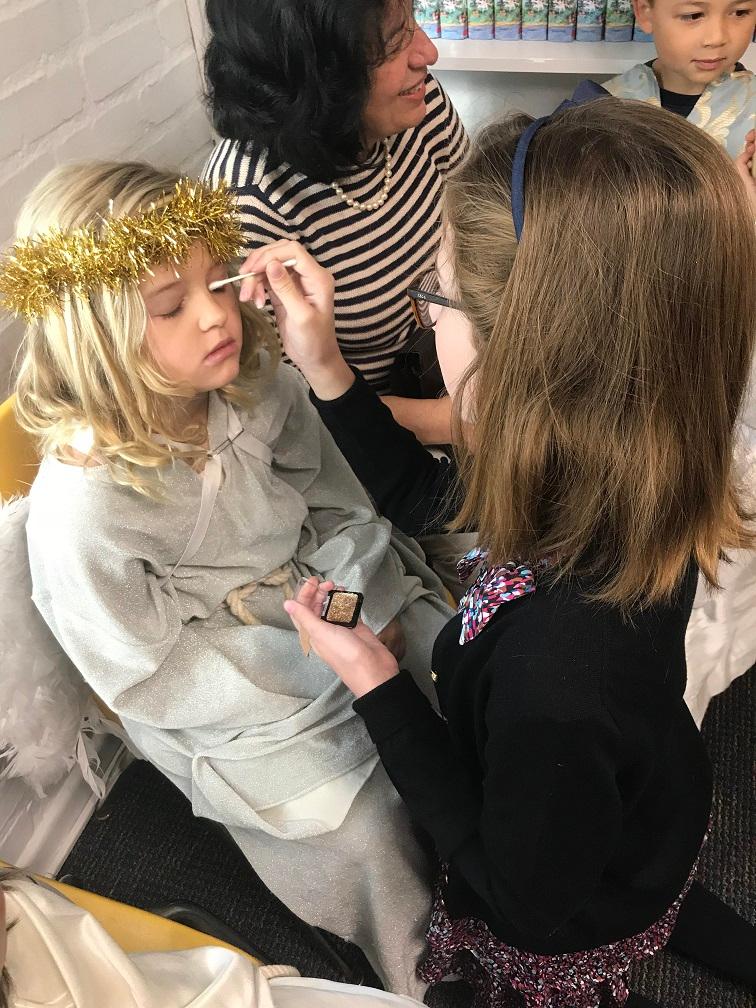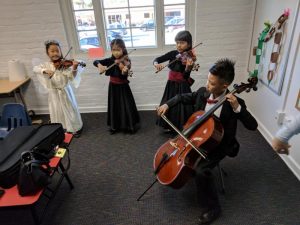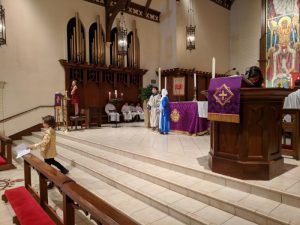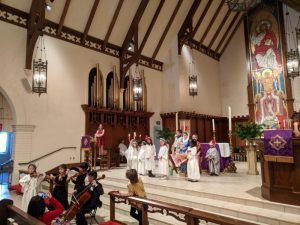Tonight is the last night of Hanukkah, Chanucha, Hanucka, or is it Khanukah? However you want to spell it, it is a major holiday for our sibling faith Judaism and yet is one we often know little about. Here is some information that might answer a few questions for you, beginning with why there are so many variations on the spelling.
Hanukkah is a Hebrew word that has been transliterated into English. As the two alphabets are quite different, the transliteration can’t be exact, leading to the multiple spellings. This struggle in conversion issues is also why the dates for Hanukkah seems to fluctuate so much. In the Hebrew calendar the first day of Hanukkah takes place on the 25th of Kislev each year. Unlike the solar Gregorian calendar, the Hebrew calendar is lunisolar, meaning that the Gregorian and Hebrew calendars don’t perfectly correspond to each other. While we followers of the Gregorian calendar see Hanukkah as moving around, to a follower of the Hebrew calendar, dates like Christmas move around-being celebrated on 7th of Tevet one year, and the 17th of Tevet the next.
While it isn’t recorded in the gospels, Hanukkah is a holiday Jesus would have celebrated; every year reliving the story of a miracle that happened during the second century BCE. At this time Judea was under the rule of the Seleucid Empire who had begun forcing Jews to convert to Greek culture and religion. There was a revolt and eventually the Maccabees, the group of Jewish dissenters, emerged victorious. The victors needed to rededicate the Temple and light the menorah, but there was a problem: they could only find one jug of oil that was still pure, which was enough for one day. Miraculously the oil lasted for eight days, which was enough time to get new oil.
Since that miracle, the menorah has long been one of the symbols of Judaism and be seen in front of many synagogues. On a standard menorah, one of the candles is raised, lowered or otherwise separated from the other eight. This candle is called the shamash and is considered distinct from the main candles (in other words, on the first night of Hanukkah there are actually two candles lit-the first candle and the shamash). It serves multiple purposes, such as being used to light the other candles. The extra candle is also important because it’s forbidden to use the main Hanukkah lights for non-religious purposes like reading or to derive a benefit from them. Part of the purpose of the shamash is to offload any benefit gained onto a non-important candle.
In addition to light the menorah there are several other things that happen during a Hanukkah celebration. The festivities always begin with the shamash being lit, followed by the recitation of blesssings. The candles are then lit, and traditionally the Hanerot Halalu is recited and songs are sung. Many families allow children to open one gift a night which is done after the candles have been lit, followed by eating. One favorite food is latkes, which are deep fried potatoes pancakes, are eaten with applesauce or cinnamon and sugar. Other typical foods are fried bread, plum filled fried dough and doughnuts. In general, there tends to be a lot of fried food, the reason being that it is a celebration of oil!
As this is a family celebration, there are lots of fun things for the kids. One game is the collection of gelt, foil wrapped chocolate coins that are said to resemble the coinage that the Maccabees minted after independence. In addition to collecting the coins, kids play games like dreidel which is a top with four sides each with a letter on it. Depending on which side comes up after a spin, the player has to do nothing, put a piece into a pot, or get some or all of the pot. The traditional story is that the letters represent the phrase nes gadol haya sham or “a great miracle happened there,” in reference to the Hanukkah miracle of the oil. While this is a game for kids, there is Major League Driedel. In 2008, NPR explained that the contest, which featured such athletes as Tasmanian Dreidel and Jewbacca, wasn’t the same as the traditional game. Instead, “Spinners compete on how long their dreidel spins on progressively smaller surfaces.” And the puns don’t stop at the player names: their “court” is referred to as the “Spinagogue,” also the name of their tabletop game. This year, the Major League Dreidel championship was held in Brooklyn on December 15, the fourth night of Hanukkah or the 29th day of Kislev.
~ Scenes from Last Week ~
The pageant was incredible! Thank you to all the parents and wonderful stage hands who made everything run so smoothly.




~ Thank You! ~
Thank you for the lovely gift and card. Antonio, Alipio and Heather are honored to serve St. Edmund’s and feel so blessed to be able to teach such wonderful children. We look forward to more fun and learning in 2018!
~ Upcoming Events ~
Sunday, December 24
Please note that we will not be having Sunday School
Family Service
4:30 pm | The Main Sanctuary
We will be welcoming a very special, very large, very dusty guest.
Christmas Eve Service
9 pm with special music beginning at 8:30 pm | The Main Sanctuary
~
Sunday, December 31
Please note that we will not be having Sunday School
~
School Vacation Boredom Busters
Join us for something every day during Christmas Break
Please contact Heather for any further information.
Tuesday, January 2
Including a possible trip to the Doc McStuffins Exhibit
$18 for Adults, $13 for kids
Wednesday, January 3
$11 for 30 minutes / $16 for 60 minutes / $21 for 90 minutes
Thursday, January 4
“Ferdinand” at the Santa Anita AMC
Tickets: $15 for adults, $12 for kids
Friday, January 5
Ice Skating
Pasadena Ice Skating Center
$11 entry, $4 skate rental
~
Sunday, January 7
Team 1 Acolyting
Family Worship
10 am | Chapel
Sunday School
10:30 am | Sunday School Classrooms.
~
Sunday, January 14
Team 2 Acolyting
Family Worship
10 am | Chapel
Sunday School
10:30 am | Sunday School Classrooms.

